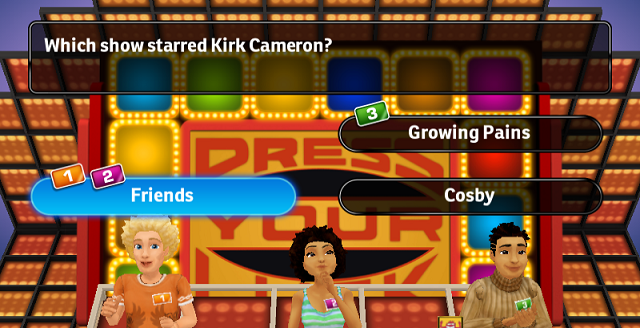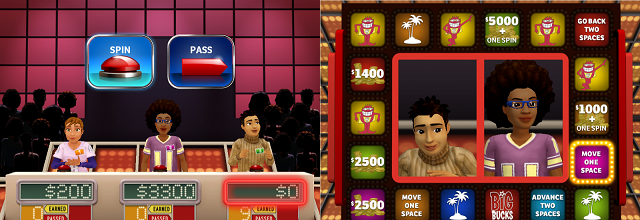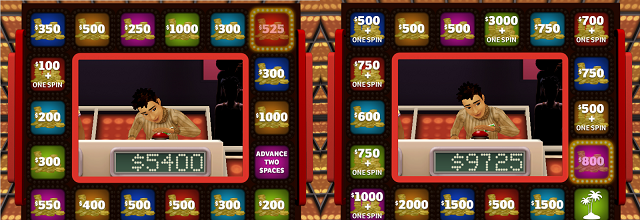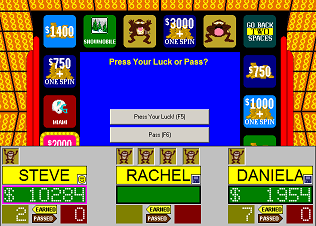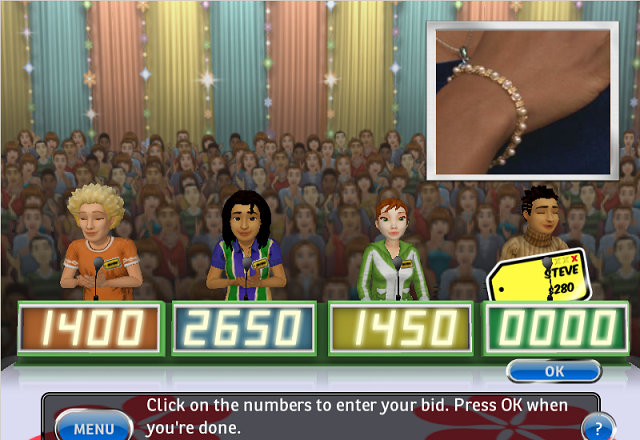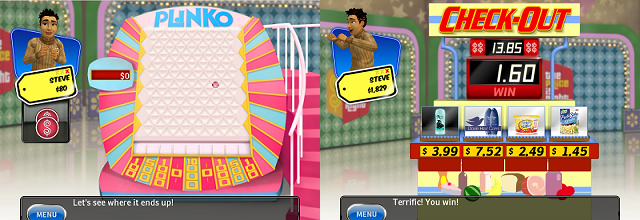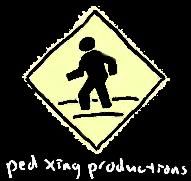I've been thinking about writing this post for quite some time, hence the terribly outdated title. It seemed like the topic came up again in a big way this past week, so I figured I should dust it off and try to work something up about it.
I think I mentioned once before how I prefer to use Facebook as a utility rather than a means of life (ah yes,
here). Since then, I've also started using Twitter in a similar way. For my Communications Theory class this past semester, I did a nice long research project (although it was technically more of a literature review?) on Web 2.0 applications and their practical usage in modern society. Before you ask, I won't be posting it here, no matter how relevant it is to the topic. The end result was terrible, my grade reflected it, and I honestly wish I could have had another week to get the whole thing together and salvage my grade (and dignity) a bit.
Nonetheless, it was an interesting topic to research. Among the articles I researched, a few talked about the impact social networking sites like Facebook may have had on elections, both here and abroad. A couple more talked about how Twitter is being used in health care, and can be an effective means for emergency response. (Interestingly, a week or two before the assignment was due, XKCD published
this comic, which I nearly included in my final project.) On the whole, it was awesome and a bit weird to see how much technology, and in particular, the Internet could be harnessed and manipulated by the average Joe.
I used to be in the camp of people who hated the concept of Twitter, because of all the people who do 140-character ramblings about their mundane activities. This is, of course, a stereotype, but it was rather prevalent back then, and it still somewhat is now. I got a Twitter account because of my Journalism professor, who attended a conference where they mentioned Twitter as a means for receiving and relaying news. He suggested that we do a little experiment and get Twitter accounts, and see whether or not it was practical or not.
I'm fairly certain I was the only one who emerged from that experiment with any sort of positive result. In addition to the professor and a few obligatory classmates, I had other friends who were already on Twitter, and making good use of it for spreading news stories they came across. Often times, I would use these stories that the people I followed posted in my radio show, as the hard-copy newspaper I was using sometimes didn't give enough material to make jokes about. As of the time of writing of this post, I follow 17 people, of whom, about half have posted a tweet on some sort of news story that I would later use on my show. My professor is following only seven people, of whom, only one appears to be using the service actively (two if you count myself). (Worth noting: One person he's following seems to have a profile pic not unlike him, although blurry. This person posts tweets (although infrequently) reflecting the same political views as my professor. Final nail in the coffin, pun unintended: Their background picture is a zombie/horror film pic, which my professor has often professed a love for. Doppelganger much? I've got my suspicions.)
After a month or two of non-tweetliness in class, my professor said he didn't much see the point in Twitter, and has stopped using it since then. I've gotten a lot out of Twitter, so what went wrong here? Is it his fault for not being a little more outgoing and following people who post news? Is it my fault for not retweeting the articles that my friends would post? Perhaps we're both a bit at fault here.
Aside from news-sharing tweets, a few reviewer friends and I have used Twitter for more social exchanges, such as comedic debate and banter. Honestly, I don't tweet often, and when I do, it's usually announcing a new blog post, but occasionally I'll tweet my two cents' worth of humorous thoughts. That's the extent of my Twitter usage, and I'm comfortable with that.
Unfortunately, one of the problems that remains with Twitter is that it still gets a bad rap as a useless site. It's hard for a lot of people to overcome the 140-characters-of-narcissism view of Twitter. (I don't need Twitter for narcissism, I've got a blog for that!) Or, they don't see the point of following celebrities mindlessly gabbing away in a similar manner. The popular opinion, from what I gather, is that people don't like Twitter, and if they once did, then it's "dying out," according to a couple of articles I read in some newspapers (which is sorta ironic, if you think about it). There really is a gem of utilibility (ooh, I should trademark that) in Twitter, but you've got to be putting it to the right uses to be able to find it.
My origins with Facebook started out a little differently from that of Twitter. It wasn't until after my freshman year of college that I decided to sign up. So far as I can remember, I didn't have anything against the service when I first found out about it, I just didn't really see the need to get it until later than most people did. Over the summer of 2007, I started my account, and I used it with the intent of, surprisingly, being social with people.
Over time, my Facebook usage started to diminish, and it took on the "utility" role that I have for Twitter. If I needed to get a hold of someone, Facebook was generally a good way to go about doing it. Someone once commented on how "naked" my Wall was. (I had a fun time continuously posting responses of "(This message has been deleted by Facebook Administration.)", much to her annoyance.) My irritation for Facebook probably started when little things called applications became popular. Day in and day out, I would receive endless requests to join some game or take some quiz or other irritating diversion. I quickly came to love the "block application" button, and to this day, I have probably about 300+ applications on my block list. (Sidenote: If you hate seeing all the messages in your newsfeed about other friends' application usage, be sure to check out
FB Purity, a very nice script that blocks those sorts of messages out.)
It seems as though Facebook has changed over the last few months though. Part of this might be due to the fact that the majority of my peers, students who graduated last week as Music Education majors, seemingly collectively changed their last names to their middle names to avoid being found in searches. It's not necessarily that there's anything bad in their profiles that they want to keep hidden, it's just that they'd prefer not to have students or employers looking up their pages. All of these years of professors stalking profiles to yell at students for what they have on their pages seems to have finally paid off, apparently.
This does bring up a huge question of privacy, and what people you haven't approved can or can't see on your profile. I
think I've gotten my profile on a tight enough lockdown that nothing aside from my name, gender, school, and location are visible to non-friend humans, although I've yet to test this out. However, there's also the numerous problems with
non-humans and how much information they can see of your profile. A bot flipping through profiles and farming information would probably be no more effective than a human doing the same thing, so the major information loss occurs when Facebook wants to make a little money.
Perhaps this is an overly-paranoid statement, but I've come to believe that at this point, Facebook now exists first with the intention of making a buck, and providing a platform for social networking second. Part of this sneaking suspicion(!) comes from the ever-changing privacy statements, which seem to grow in length and become more vague and legalese at time goes on, despite Facebook's best efforts to "keep the peoples' best interest in mind." Part of this suspicion comes from how Facebook seems to want to barge into other aspects of my life, and Facebook seems to be willing to shell out my personal information to do so.
Part of this suspicion comes from an instance I had a couple weeks ago, when I checked my actual profile page for the first time in a few days. I was greeted with a Facebookian dialogue box asking me to link my interests to their respective "pages". "Hm, what," I asked. Apparently, the "interests" I put in my profile page are no longer to be read as a normal paragraph explaining my interests, favorite books, TV shows, etc., but are now to be attached directly to the pages they correspond to. As I mentioned before, I use Facebook strictly as a utility, so I have avoided joining any fan pages up until now. Thus, I declined joining any of the fan pages. Little did I know that this would actually
delete all of my interests from my profile, leaving me with absolutely no personal information about myself other than my gender and school. Clearly, the Facebook I once knew for sharing information with my friends instead of the whole world is gone. This, among many other reasons which I have mentioned above and will continue to mention below, are catalysts for me to leave Facebook. I'd rather people not look me up by what I enjoy, but rather, who I am.
Thus, in the last couple of weeks, Facebook and I have been on slightly uneasy terms. Apparently, I've not been alone in this. I started seeing news stories popping up on how Facebook might be violating its own privacy policy by selling information to advertisers. Facebook's privacy policy is apparently now longer than the US Constitution (which, frankly, isn't terribly long, but it says something when you have to deal with more legalese to be a member of a website than to run an entire country). A friend of mine has actually decided to leave Facebook entirely, citing a number of links showing how corrupt Facebook really is. I'm very much not alone in thinking Facebook's no longer a good site. (
link,
link,
link, although I might argue with some of the points in the last one.)
Despite its corruption, I still plan to keep using my Facebook account, for the time being at least, because it's still a decent tool for contacting friends. Aside from photos (from which it'd be hard for advertisers to get any personal information about me), my profile is nearly bare, save for a few essential bits of information.
This really is a shame, because I have seen the potential benefits of Web 2.0 sites such as Twitter and YouTube, but Facebook really seems to have gone down a dark path. Do I still think there's hope for the expansion of practical applications of Web 2.0? Possibly, but the faults that Facebook has committed really makes one lose confidence in the system. When you're invited in as a human but treated as a piece of meat, it's hard to enjoy a decent burger later.
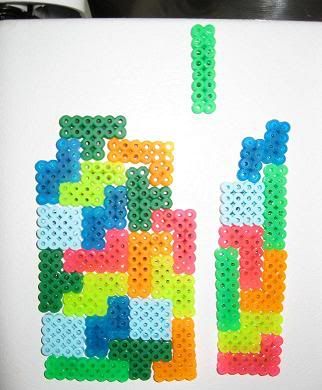 My mind is completely shot right now. Over the last few days, I've been struggling to come up with any sort of way to set this post up. I wanted to tie this in with my summer reading list and links to the books on Amazon. I wanted to tie this in with a short essay on why "Sit Down, Shut Up" was actually a very good show and could have lasted longer than one pseudo-season if they had debuted with any other episode than the one they used. Unfortunately, everything I've written in the last few days has been crap and I've scrapped everything.
My mind is completely shot right now. Over the last few days, I've been struggling to come up with any sort of way to set this post up. I wanted to tie this in with my summer reading list and links to the books on Amazon. I wanted to tie this in with a short essay on why "Sit Down, Shut Up" was actually a very good show and could have lasted longer than one pseudo-season if they had debuted with any other episode than the one they used. Unfortunately, everything I've written in the last few days has been crap and I've scrapped everything. 
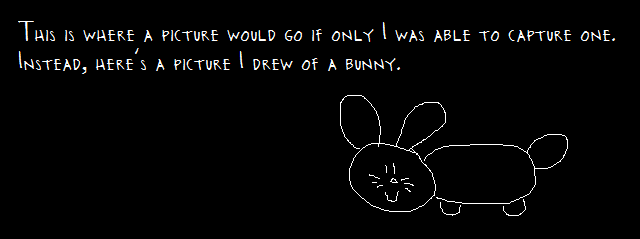
 In order to remedy this rash of people claiming that the difficulty of the game is determined by the music that's playing, I'd like to propose a system for analyzing this fluctuating corelation. Each game would be rated by a few different criteria, each getting a score from one to ten, indicated by the box above (black out colored bars for scores less than ten, and put the name of the specific criteria in the bottom half of the box... and yes, it did take me two minutes to whip that up in Paint, thank you very much).
In order to remedy this rash of people claiming that the difficulty of the game is determined by the music that's playing, I'd like to propose a system for analyzing this fluctuating corelation. Each game would be rated by a few different criteria, each getting a score from one to ten, indicated by the box above (black out colored bars for scores less than ten, and put the name of the specific criteria in the bottom half of the box... and yes, it did take me two minutes to whip that up in Paint, thank you very much). 
